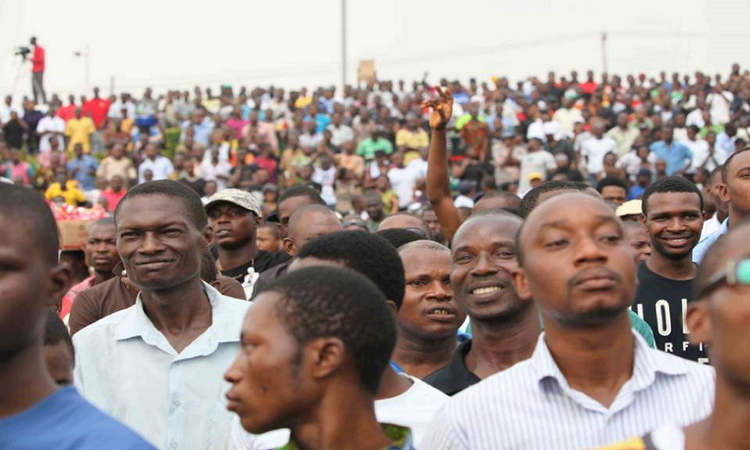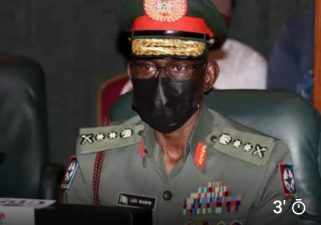By Adeniji Boluwaduro Abraham (Editor-in-chief; HELP Foundation)
HELP foundation is a youth-led organization which has shown a highly promising potential to mitigate the many challenges that besiege the nation’s tertiary education system, and problems that make it especially incapable of producing the quality of graduates expected of any ideal system in the world. We have great youths like the founder Olympus Ade-Banjo, and many more coming to the realization of the curious reality on our campuses, accentuated by the degradation of safety, dignity and ethics. This he observed as a then-200-Level student, as it was too compelling to ignore.
Due to lack of robust national planning as the root cause of the dysfunctionality in all the sectors in Nigeria, it has been appalling and lately becoming laughable the state of Nigeria’s tertiary education as it has eventually become a ‘circumcision centre’ where our youth strive to attain the social status of ‘graduate’ rather than acquire the empowering knowledge and thorough preparation needed to fulfil their lofty dreams (and impart society). The Nigerian higher education is now preponderantly associated with an interminable dogfight between staff unions and the government while students are each time at the receiving end of strike actions paraded in their interests but in reality cannot be farther from the truth.
Speaking of students being at receiving ends, it is worthy of note that Nigeria’s campus has evolved into a wild habitat for students, rife with any predatory culture you can think of: from sexual harassment (sex-for-grade) to financial extortion, physical and emotional tortures, abject disregard for Human Rights and gross negligence of quality services. The keyword here is culture—having built a system where the vulnerabilities of students are constantly exploited up the levels of administration and across the ranks of authority. So much for a ‘rite of passage’.
I doubt it can be more picturesquely demonstrated that “the absence of purpose is a license for misuse” than the case of Nigeria’s higher education system as lack of actionable vision and meticulous implementation has robbed the system of focus on the students and youth as the arch-stakeholders in the education business. This explains why the heated debates have never been about upgrading the curriculum or creating better spaces for students, but on administrative independence of school managers and financial benefits for staff.
As regards this, Olympus Ade-Banjo who then as a 200-Level university student said, “I was frequently disturbed by the practices on campus; how normal it was for the majority of the girls to live under the pressure of sexual advances from lecturers who leverage on the non-accountability afforded them by the system to victimize students at will (including rape and other nefarious afflictions); the audacity of schools to schedule lectures for thousands of students in a 300-seat capacity hall without recourse for health and convenience; how the simplest administrative duties are ‘mercifully rendered’ to students who are constantly reminded how undeserving they are of any duty from the school and its staff; poor clinic and convenience facilities for the same reason that students are slaves afterall; and stifling of the student representation and press freedom which has seen more students prematurely out of school than actual misconduct. These are among many grotesque conditions.” This was stated by the founder in his campus memoir entitled Nigeria’s Camp-Us, to be made public later this year.
One is left to wonder what would have been if it is not typical of Nigerians to go through horror without an outcry. The bottled frustration is chief reason behind the mass depression among students which has now made suicide endemic among students in Nigeria. The misery takes it toll in an array of ways as some others resolve to crimes like cultism for survival on campus; and due to lack of proper orientation for student leaders, active unionism has been misconstrued for empty brass sounding over petty demands.
The challenge with Nigeria’s tertiary education is multi-layered but not impossible to fix. To start, we need to restore a student-centred atmosphere. “Since this introspection in 2018, I searched everywhere on net to see if there was any organization seeking to solve these problems with systematic solutions, but none save results of similar organizations across the Americas, Europe, and South Africa. It was instructive to me how our choice destinations for ‘education asylum’ are replete with civil society organizations that promote and protect their students and the quality of their education,” he added.
This was the beginning of the HELP journey. In January 2018 in the company of two co-founders, Ayotunde Omole (Board Chairman)and Damilare Bajela (Director of Finance) and moral support from friends and mates then on campus.
“We defined the mission of the organization: to protect the safety and dignity of students by promoting legislation of ethical standards on campus while we advocate improved learning infrastructures and flexibility,” he remarked.
With firm belief in process and sustainability, they figured that the first step is to infiltrate student communities and assemble like-minds who will play key role in a gradual decampaigning of the regressive cultures on their campuses. The HELP Student Network was formed for this purpose and has since organized student-engaging/empowering programs in the last couple of years: starting from a digital empowerment program held at the University of Ilorin in June 2018, to the Student Leaders Conference on Human Rights which held at Universities of Ilorin and Ibadan to commemorate Human Rights Day 2018 in an interaction with students over the state of Human Rights on their respective campuses.
In 2019, a hundred HELP members on the University Road at Ilorin sensitized students house-to-house with use of tracts on need to reach out for help when abused or when their fundamental rights are undermined. This took place on April 26, International Day for Safety—marking the birth of the #MakeTheCampusSAFE campaign.
HELP Student Network chapters have also participated locally in contributing positively to their respective campuses. Such example is massive blood donor drive held in June 2019 at the University of Ilorin to support the University clinic and teaching hospital in the provision of blood for students and others in need. Other unannounced actions include representatives of HELP being part of student actions like the pressuring of school managements to pull out of prolonged strike actions or in the case of Jeremiah, then a law student at Ekiti State University, who saw to the release of unduly detained fellows by the police operatives after indiscriminately raiding their homes and dispossessing them of their property. Some students at the brink of dropping out of school for financial constraints have benefited from our crowd funding exercises as well.
With over 500 students in its network, the foundation in 2020 has taken the action further in its program for the year, the Campus Reorientation Program (CROP). The reorientation e-handbook which is nicked the Ideal Campus guide is a product of this initiative, bearing in it the ideal conditions for the thriving of students. It was launched in June, being made available for free download on the foundation’s website to target 100,000 students in 2020. Other aspects of this program includes a monthly Student Leaders Conference and weekly interactive seminars on social media. All these efforts are geared towards involving students in our quest to change the campus; hence the campaign hashtag #EquallyInvolved.
The growth and impact of the foundation have been stifled due to financial restraints since majority of its members are students and fresh graduates. This may come to tell on the fate of the organization, if it will indeed be able to push legislative agendas for protection of students in coming months. In the meantime, it is nothing less laudable to find young people striving to fix one of the most critical challenges in Nigeria so systematically. Question that begs for answer, however, is if our leaders, corporations and persons of privilege would count education and safety of students, critical enough to support these youth action.




